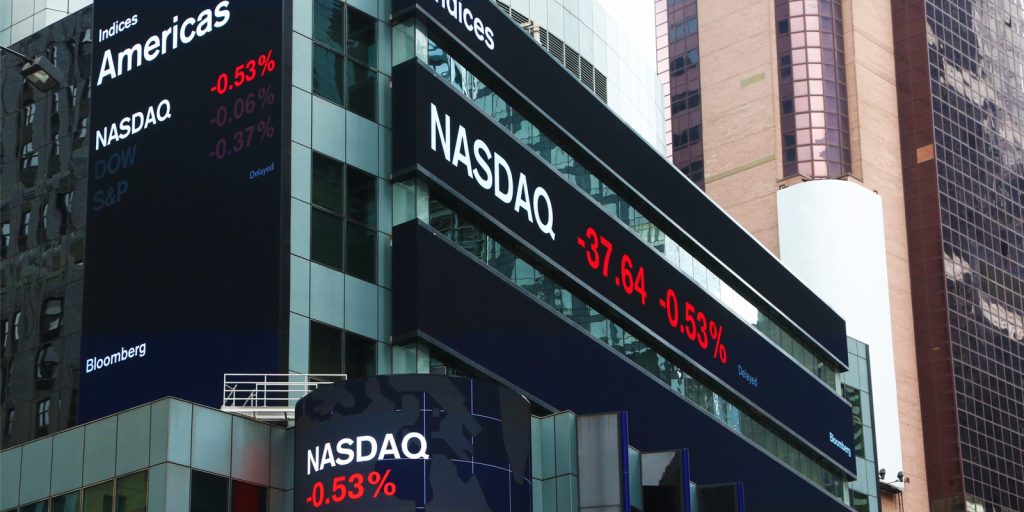
It was recently reported that digital assets trading platform DX Exchange ceased operations and was looking for a way to exit the market via a merger or a sale. New details from Israel show that the exchange reportedly didn’t even have the cash flow to pay its suppliers and employees.
Also Read: Crypto Winter Claims Another Victim as DX Exchange Closes
New Details Emerge on DX Exchange
Estonia-registered DX Exchange announced on November 3 that the platform was not allowing any more deposits from clients, trading was suspended and all open orders had been canceled. This was said to be done until a new buyer can be found for the company or it can merge with another exchange to reduce the high cost of running the business. “The cost of providing the required level of security, support and technology is not economically feasible on our own,” the company explained at the time.
New media reports reveal just how bad the financial situation was for the trading venue, not being able to pay either its staff or suppliers. DX Exchange reportedly had dozens of software developers in an R&D center in Israel, employed via the local company CX Technologies Ltd. According to the new media reports, 78 former and current employees petitioned the Israeli court last month claiming that they had not received their wages since September 2019, with some of them not getting the benefits they were due for over two months.

“In addition to the petition by employees, several Israeli suppliers have sued the company in the last six months for allegedly failing to pay its bills. These companies are White Hat Ltd., which provided cybersecurity services to DX Exchange, and Bee2see Dotan B.S. Solutions, which provided targeted marketing of potential customers using IBM’s Watson system. Malam Team, one of Israel’s largest IT companies, has also sued CX Technologies for allegedly failing to pay for servers the company supplied,” writes the Times of Israel.
Nasdaq-Powered Tokenized Assets Exchange
DX Exchange was only launched on Jan. 7, 2019. It accepted deposits in BCH, BTC, ETH, USDT, DASH, LTC, XRP, and a few other cryptocurrencies as well as traditional fiat payment options. It initially offered trading on the tokenized stocks of some of the biggest public companies in the world, such as Google, Facebook and Amazon. This had been achieved through an agreement with MPS Marketplace Securities Ltd., which issued tokens that represent stocks via smart contracts and held the real world stocks according to demand on the platform.
The “digital stocks” were said to be backed 1:1 with the real-world stocks traded on conventional stock exchanges, like stablecoins backed by equities rather than fiat. Unlike traditional stock exchanges, this arrangement allowed the platform to offer its users the ability to trade on stocks 24/7.
DX Exchange obtained operating licenses from the Estonian Financial Intelligence Unit and was backed by NFX, a seed and series A focused venture capital firm based in San Francisco. The regulated platform operated in full compliance with Mifid II (the latest EU financial regulations), which means it featured a robust AML/KYC process. Its partner, MPS Marketplace Securities Ltd. is a Cyprus-licensed financial company which provides liquidity solutions for the online trading market.
The technology that powered DX Exchange was built on Nasdaq’s Financial Information exchange (FIX), a vendor-neutral standard message protocol that defines an electronic message exchange for communicating securities transactions between two parties. The platform also supported trading via an API, which means it was easily integrated with market makers, liquidity providers, algo traders, and hedge funds.

In early March, it was reported that DX Exchange began offering trading on tokenized exchange-traded funds (ETFs), including Nasdaq-mirrored QQQ, S&Ps and SPY. Later that month, it was also revealed that the platform was starting to list security token offerings (STOs).
Any security token could submit an application to be listed and needed to meet eligibility requirements for listing on the exchange. The potential issuers were evaluated according to their achievements, transparency, fundraising method, and management team. DX also required a legal opinion which supported the STO’s legitimacy, and performed background checks on the management team and directors. For each security token which was offered, a whitepaper explaining the conditions, economic benefits and risks was required.
According to the Times of Israel, many of the Israeli employees of CX Technologies were former employees of binary options technology provider Spotoption.
What do you think about DX Exchange reportedly not paying its employees and suppliers? Share your thoughts in the comments section below.
Images courtesy of Shutterstock.
Verify and track bitcoin cash transactions on our BCH Block Explorer, the best of its kind anywhere in the world. Also, keep up with your holdings, BCH and other coins, on our market charts at Bitcoin.com Markets, another original and free service from Bitcoin.com.
The post Bankrupt DX Exchange Reportedly Didn’t Pay Israeli Suppliers and Employees appeared first on Bitcoin News.
from Bitcoin News https://ift.tt/2rnYTBM
Comments
Post a Comment